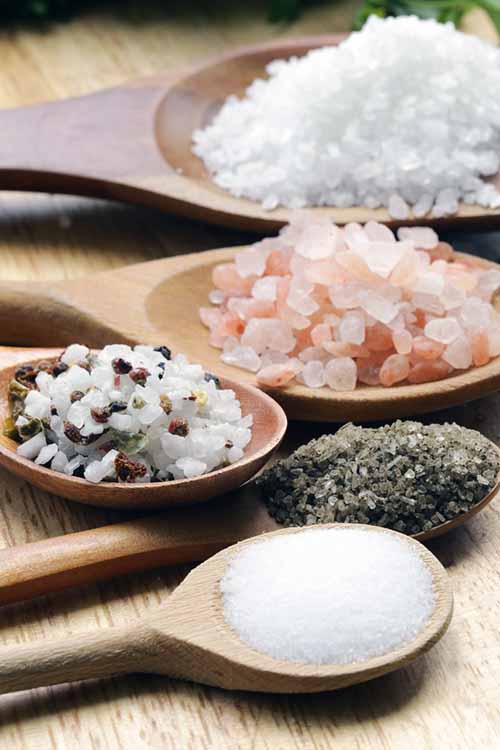Sauce, the culinary canvas that transforms a humble dish into a masterpiece, can quickly turn sour when an overzealous hand with the salt shaker strikes. Fear not, dear readers, for this article will be your culinary guide to the rescue mission of fixing an overly salty sauce. Embark on an enlightening journey as we explore the depths of flavor balancing, armed with expert insights and practical tips that will have you savoring your perfectly seasoned creations once again.

Image: www.pinterest.com
The Perils of Excess: A Salty Saucy Dilemma
Salt, a culinary cornerstone that enhances flavors and preserves freshness, can become the downfall of a dish when used with abandon. An overly salty sauce overpowers delicate flavors, leaving a lingering bitterness that can ruin an otherwise perfect meal. Understanding the reasons behind this culinary misstep is the first step towards redemption.
The primary culprits of salty sauces often lie in haste and imprecise measuring. Cooking in a hurry can lead to accidental over-salting, while relying on scant pinches and dashes without proper measuring can result in an unintentional buildup of saltiness. Another potential pitfall is using overly concentrated ingredients like bouillon cubes or pre-seasoned stocks, which can contribute excessive salt without your realization.
Navigating the Salty Seas: Reclaiming Flavor Harmony
Fear not, the culinary tide can be turned back in your favor with a few simple yet effective techniques. Here’s your guide to rescuing your sauce from the throes of saltiness:
-
Diluting the Delight: Adding a touch of water, broth, or stock to your sauce can help dilute the concentration of salt. Start cautiously with small additions, tasting as you go to avoid over-dilution. Remember, the goal is to balance flavors, not wash away the savory essence.
-
Sugar Rush to the Rescue: A pinch of sugar can counteract the harshness of excess salt. Add a tiny amount at a time, stirring thoroughly, and taste until the bitterness subsides. Don’t overdo it, as too much sugar can lead to a sauce that’s overly sweet.
-
Starchy Savior: Flour or Cornstarch: These trusty thickeners can bind to the excess salt, reducing its intensity. Make a slurry by mixing either flour or cornstarch with a little water, then whisk it into the sauce. Bring to a simmer and cook until thickened, keeping a keen eye on the consistency.
-
Acidic Alchemy: Vinegar or Lemon Juice: A dash of vinegar or lemon juice can introduce a contrasting acidity that tempers the saltiness. Start with a small amount and gradually add more until you achieve a harmonious balance.
-
Dairy Delight: Milk or Cream: Dairy can help mellow out the sharpness of salt. Incorporate a splash of milk or cream into your sauce, stirring until well combined. This technique works particularly well with creamy sauces like alfredo or béchamel.
-
The Buffering Power of Potatoes: Potatoes, rich in starch, have a remarkable ability to absorb excess salt. Slice a raw potato into the sauce and let it simmer for a while. As the potato cooks, it will draw out the salt, leaving your sauce more balanced. Remove the potato before serving.

Image: foodal.com
How To Fix Too Much Salt In Sauce
Expert Insights: Wisdom from the Culinary Masters
-
Master Chef Jacques Pépin: “When you over-salt a sauce, don’t panic. Add a little water or stock at a time and taste as you go. You can also add a pinch of sugar to balance the flavors.”
-
Michelin-Starred Chef Daniel Humm: “Acidity can be your friend when dealing with too much salt. A dash of vinegar or lemon juice can help cut through the saltiness and brighten the flavors.”
-
Culinary Icon Julia Child: “Remember, moderation is key. Always taste your food before adding salt, and start with a small amount. You can always add more, but taking it out is a trickier task.”